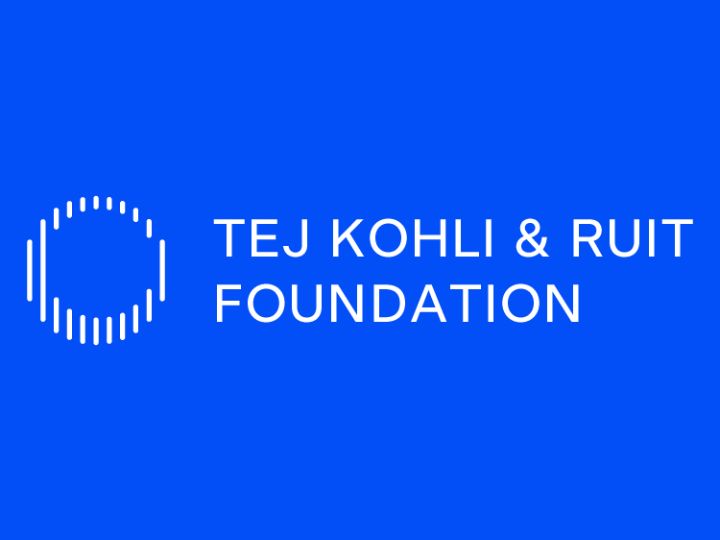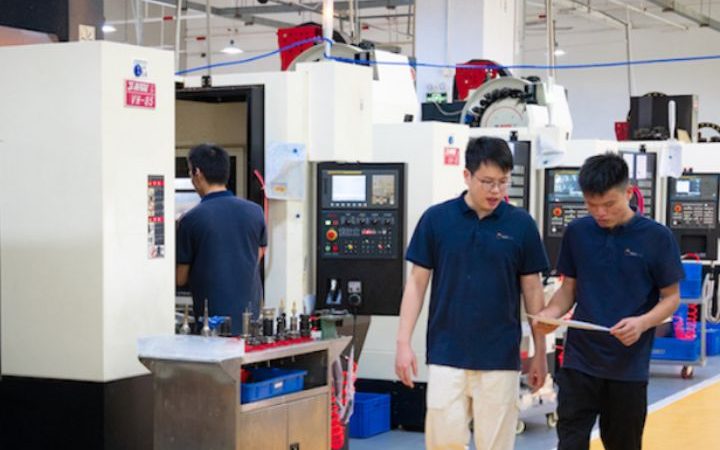Tej Kohli and Ruit Foundation – Mission to Fight Poverty-Derived Blindness in Developing World

Visual Impairment and blindness go hand in hand when talking about the challenges faced by a developing country. Unfortunately, the majority of the blindness in the world comes from developing countries, where poverty and blindness go on in a vicious cycle. According to a recent survey, 90% of vision impairment comes from poor countries and a major reason for that is cataracts.
Cataracts are preventable and easily cured when intervened at an early stage. Also, eye care should be affordable enough so that every section of people can access it.
Therefore, for such an underprivileged group of people, the Tej Kohli and Ruit Foundation has come forward with cost-effective solutions to drive out poverty-driven cataracts and blindness from the developing world.
Connection Between Poverty and Cataract Blindness
Several regions across the world identify poverty as the cause and effect of blindness. Poverty and blindness go on in a cycle where poverty induces blindness and in turn, blindness induces poverty. The sufferers of vision impairment can be cured but due to limited access to health resources, they are pushed towards complete blindness.
A study conducted on blindness above and below the poverty line in Mozambique reveals that the majority of blind people or people with visual impairment are below the poverty line. There are two underlying reasons for this. The first one is that poverty leads to a nutritional deficit which in turn pushes people towards blindness and the second one states about the unaffordability of resources when people are diagnosed with visual impairment.
These studies have led the World Health Organisation to state four factors that contribute to poverty-driven blindness in the developing world. There are socioeconomic factors, economic deprivation, limited accessibility to healthcare resources, and the reduced power to earn a living.
Impact of Poverty-Driven Cataract Blindness on Families
Visual impairment and blindness have a massive impact on the women and families that are below the poverty line. The majority of blind people from poor communities face challenges while continuing their daily life activities. People with blindness are often shut out from jobs and other economic opportunities as they are considered “disabled”.
As a result, the family members of such blind people feel it better to take care of the disabled rather than taking up jobs which needless to say, pushes the family into a much deeper pit. Recent studies have shown that the economic productivity of cataract-affected patients has increased to as much as 1,500% more when compared to the cost of cataract surgery and that too in the first postoperative year itself.
How is Tej Kohli and Ruit Foundation Helping to Fight Poverty-Derived Cataract Blindness?
The Tej Kohli and Ruit Foundation is a non-governmental organization that has successfully cured more than 15,000 patients from poverty-driven cataract blindness by intervening at the grassroots level. The co-founder and widely known philanthropist, Mr. Tej Kohli believes that driving out blindness from the world is one of the best ways to increase the economic production of a nation.
Cataract surgeries may cost up to $500 or more, whereas, the Tej Kohli and Ruit Foundation charges as little as $50 for the cataract surgery, and the surgery is performed within only seven minutes. How amazing is that! Their work is completely funded by Mr. Tej Kohli and his whole family. The Tej Kohli and Ruit Foundation has undertaken the mission to fight blindness by bridging the gap between the treatment modalities and the poorest communities of the world.
A Story From the Foundation: Curing Poverty-Derived Cataract Blindness
Shri Mani Rai is one of the oldest residents of Solukhumbu in Nepal who was married off at the age of 16. After that, she had one son and one daughter. However, as her fate had it, she lost her son and her husband in less than a decade’s time and was left completely alone. Her husband mainly died due to inaccessibility to advanced medical care. On the other hand, she developed cataracts in both of her eyes over the years.
Also, she was rendered completely penniless as she sold off all her assets for the treatment of her husband. Even though she had suffered from cataracts for the longest time, they seemed to have matured some time back and left her completely blind. Already passing her days in poverty, Shri Mani Rai could not afford the treatment modalities.
She was passing her days in darkness when a screening team of Tej Kohli and Ruit Foundation, who were traveling to the inner parts of Solukhumbu District, found her in March 2021. They advised her to pay a visit to their Cataract Outreach Camp, which was to be in April 2021 in Phaplu, about 25 km from her residence.
Shri Mani Rai was very happy to know that her surgery would be done by world-leading eye surgeon, Dr. Sandok Ruit, which was a part of their outreach initiative. She reached Phaplu on the 15th of April and was put under the knife on the 16th of April. She could not wait till the next morning to get her bandages removed.
The next morning as soon as her bandage was removed, she saw none other than D. Sandok Ruit standing in front of her, smiling. Her daughter and granddaughter shed some happy tears when Shri Mani got her vision back and departed for home the next day.
This way Tej Kohli and Ruit Foundation has been touching lives worldwide since their launch and have a goal of curing 300,000 cataract-affected patients by 2026. The foundation has collaborated with many hospitals in Nepal and treated preventive blinds. Their collaborative efforts have proved to have significant impacts on eye health throughout the world.
Curing Poverty-Derived Cataract Blindness in Developing World: Ultimate Goal of Tej Kohli and Ruit Foundation
Effective intervention by the Tej Kohli and Ruit Foundation has helped them restore the vision of thousands of people who were passing their days in darkness. Since 2021, the NGO has been reshaping its objective and making huge efforts to drive out poverty-driven cataract blindness. The NGO has a goal of screening 1,000,000 people and among them curing 300,000 to 500,000 people of cataract blindness by the year 2030.
For this, the NGO is setting up outreach camps and reaching out to the poorer section of the world to identify the affected and counsel them to undergo cataract surgery for their betterment. The Tej Kohli and Ruit Foundation is working very hard to end severe poverty through the process of making cataract surgery accessible to those living with needless cataract blindness in today’s developing world.






